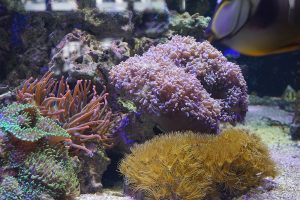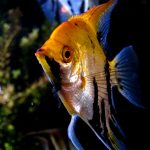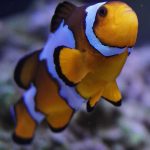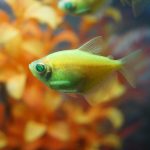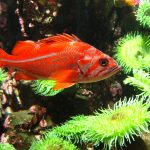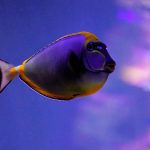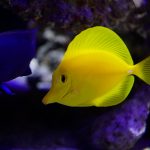Coral Husbandry for a Healthy and Captivating Reef Aquarium
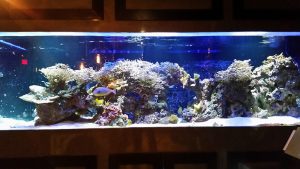 It wasn’t long ago that caring for corals in closed, recirculating systems like the reef tanks we see in lots of homes and businesses was considered impossible. The prevailing wisdom was that these animals were too fragile, too demanding and the life support and water quality parameters necessary for success were far too technical for all but the most experienced professional aquarists. However, these days the sight of a stunning coral display in the lobby of an office, behind a bar, separating a dining room in a restaurant or the living or family room in a private home are increasingly common.
It wasn’t long ago that caring for corals in closed, recirculating systems like the reef tanks we see in lots of homes and businesses was considered impossible. The prevailing wisdom was that these animals were too fragile, too demanding and the life support and water quality parameters necessary for success were far too technical for all but the most experienced professional aquarists. However, these days the sight of a stunning coral display in the lobby of an office, behind a bar, separating a dining room in a restaurant or the living or family room in a private home are increasingly common.
But what is not common is the amount of work and knowledge it takes to keep those coral reef aquariums thriving. It’s not easy to learn but it can be much easier if one is committed to spending time, effort, a willingness to learn and maintain the system and most of all, the patience to make minor adjustments and wait to see how they affect the growth, coloration and overall health of the corals.
There are thousands of species of corals, each with their own requirements for nutrition, flow, lighting, water chemistry and other considerations. We will go over these considerations in very general terms so that our clients have a baseline understanding of how our Portland coral reef aquarium maintenance professionals keep our clients’ coral tanks looking great.
Basic Coral Care Considerations
- Lighting – Naturally, not all corals have the same lighting requirements. Most corals have symbiotic algae living in their tissues called zooxanthellae. The algae are capable of photosynthesizing light into energy the same way that plants can. The algae get a safe place to live, where they can’t be eaten and the host coral benefits from glucose and other nutrients as byproducts from photosynthesis. So, healthy corals need lighting that provides the right wavelengths for the correct photoperiods to keep the zooxanthellae healthy.
- Water flow – Consider the shifting, random and unpredictable water currents of the tides as they flow around a craggy coral reef. The intensity waxes and wanes, with strong directional flows giving way to moments of seeming stillness. Consider also that these currents deliver food like zoo- and phytoplankton and remove waste. The posture and extension of individual corallites or polyps of a coral colony largely depend on whether or not they are receiving the type of flow they prefer. Too much flow and the coral polyps will not deploy and the coral dies. Too little flow and you get the same result. It takes a practiced eye and plenty of experience to determine whether or not a coral colony is getting enough or too little flow. This is one of the reasons why many folks seek the advice and technical expertise of a professional reef tank maintenance service to maintain their display.
- Water Chemistry – This is another rather broad category of coral husbandry and there’s a lot to know. This is one of the many reasons why we perform regular water testing and interpret the results for our clients. In order for a coral aquarium to thrive, we closely monitor the following parameters to ensure that the water will sustain coral health: ammonia (NH3,) nitrite (NO2,) nitrate (NO3,) magnesium (Mg,) phosphate (PO4,) carbonate hardness (dKH,) pH, salinity, calcium (Ca,) and temperature. These all need to be maintained within fairly narrow windows of concentration (or kept to an absolute minimum) in order for corals to thrive.
- Nutrition – Corallites, or coral polyps, usually extend to their fullest at night in order for the colony to feed on zoo- and phytoplankton, the tiny organisms being carried by the current. If you look closely at a coral polyp when it is extended, you’ll be able to see that most of the polyp is comprised of tentacles that catch and deliver the food to the mouth of the polyp. If you have corals in your collection that require supplemental feeding, it’s important to consider food size and not feed too much or too little. Too much coral food will trash the water chemistry; too little and the coral will not grow and thrive. Many of our clients who feed their corals culture brine shrimp, rotifers and other small organisms in addition to plankton concentrates sold in bottles in your local fish store.
Coral Aquarium Cleaning, Moving and Maintenance in the PDX Area
If you have an existing coral tank or would like one built for your home and business, you are in the right place. Our professional aquarists have decades of combined experience caring for coral displays in homes and businesses throughout the Portland area. For those who want to know more about the animals in their collection and the life support system that makes it possible, we are always happy to answer questions, as client education is central to our business philosophy. For more information about coral husbandry and all other aspects of a having a stunning coral display in your home or business, call us today at 503.784.4403.
